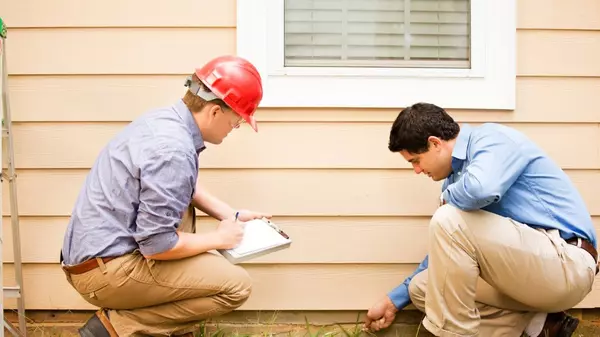
Comparing Mortgage Loan Types
When it comes to buying a home, one of the most important decisions you'll make is choosing the right mortgage loan type. As a buyer, there are several options available to you, each with its own set of benefits and drawbacks. Understanding the differences between mortgage loan types can help you make an informed decision and ensure that you get the best possible financing for your new home.Fixed-rate mortgages are one of the most popular types of mortgage loans. With a fixed-rate mortgage, your interest rate stays the same for the entire life of the loan, which can range from 10 to 30 years. This means that your monthly mortgage payment is predictable and won't change, regardless of any changes in the real estate market. Fixed-rate mortgages are ideal for buyers who want stability and predictability in their monthly payments.Adjustable-rate mortgages, or ARMs, are another popular option. Unlike fixed-rate mortgages, the interest rate on an ARM can change over time, based on market conditions. ARMs typically have an initial fixed rate period of 3, 5, or 7 years, after which the rate can adjust annually. While initial rates on ARMs are often lower than those on fixed-rate mortgages, they can be unpredictable and potentially increase substantially over time. ARMs are ideal for buyers who want to take advantage of lower initial interest rates and are willing to take on some risk.FHA loans are government-backed loans that are designed to help low- to moderate-income buyers purchase a home. FHA loans require a lower down payment than conventional loans (as little as 3.5% of the purchase price), making them an attractive option for buyers who don't have a large amount of cash on hand. However, FHA loans also require mortgage insurance, which can increase the overall cost of the loan. FHA loans are ideal for buyers who want to purchase a home but don't have a lot of money saved for a down payment.VA loans are similar to FHA loans, but they are only available to veterans and active-duty military members. VA loans don't require a down payment and don't require mortgage insurance, making them an attractive financing option for eligible buyers. VA loans are ideal for military members and veterans who want to purchase a home but don't have a large amount of money saved.USDA loans are another government-backed option that are designed to help rural and suburban buyers purchase a home. USDA loans don't require a down payment and offer competitive interest rates, making them an attractive option for eligible buyers. However, USDA loans also have income restrictions and can only be used to purchase homes in eligible areas. USDA loans are ideal for buyers who want to purchase a home in a rural or suburban area and meet income requirements.In conclusion, when it comes to choosing a mortgage loan type, it's important to understand the differences between each type and weigh the pros and cons. Fixed-rate mortgages offer stability and predictability, while ARMs offer lower initial rates but can be unpredictable. FHA loans and VA loans offer financing options for buyers with limited cash on hand, while USDA loans are ideal for buyers who want to purchase a home in a rural or suburban area. By understanding these differences, you can choose the right mortgage loan type for your needs and ensure that you get the best possible financing for your new home.

Buying A Fixer Upper
Are you considering buying a fixer-upper? This can be a great investment opportunity for buyers who are willing to put in a little extra work. However, it’s important to do your research before making a purchase.First and foremost, it’s important to have a clear understanding of what you’re looking for in a fixer-upper. Are you looking for a home that needs cosmetic updates, or are you willing to take on a major renovation project? Knowing what you’re looking for will help you narrow down your options and make a more informed decision.When it comes to financing a fixer-upper, there are several options available. Home improvement loans are a popular choice for buyers who are looking to make updates to their new home. These loans are typically secured by the equity in your home and can be used for a variety of purposes, including remodeling, repairs, and upgrades.Another option is a hard money loan. These loans are typically offered by private lenders and are intended for short-term investments. While they can be more expensive than traditional home loans, they can be a good option for buyers who need to move quickly on a property.When shopping for a fixer-upper, it’s important to pay close attention to the condition of the property. Look for signs of structural damage, water damage, and other issues that may require extensive repairs. It’s also a good idea to have a professional home inspection before making an offer.In addition to the condition of the property, it’s important to consider the location and potential for future growth. Look for properties in up-and-coming neighborhoods that are likely to appreciate in value over time.In conclusion, buying a fixer-upper can be a great investment opportunity for buyers who are willing to put in a little extra work. When shopping for a fixer-upper, be sure to consider the condition of the property, financing options, and potential for future growth. With the right approach, you can find a great fixer-upper that will provide a solid return on investment.

Finding a Real Estate Agent
Finding a Real Estate AgentWhether you're a buyer or a seller, hiring a real estate agent is a crucial step in the process. With so many agents out there, it can be overwhelming to find the right one for you. Here are some tips to help you find an experienced agent and the questions you should be asking.Buyers:As a buyer, your real estate agent will be your guide through the home-buying process. They will help you find homes that meet your criteria, negotiate with sellers, and guide you through the closing process. It's important to find an agent who has experience in the areas you are interested in and can offer valuable advice about the local market.Questions to ask your real estate agent:-How long have you been working in real estate?-What areas do you specialize in?-Do you work with first-time buyers?-What is your availability like? Can I expect quick responses to my questions?Sellers:If you are selling your home, your real estate agent will be your advocate and help you navigate the sometimes tricky waters of the real estate market. They will help you price your home, market it effectively, and negotiate with potential buyers. It's important to find an agent who has a strong track record of successful sales and can offer valuable advice about how to best present your home to potential buyers.Questions to ask your real estate agent:-How many homes have you sold in the past year?-What is your average sale price?-What marketing strategies do you use to sell homes?-What is your commission rate?Real Estate News:A good real estate agent stays on top of the latest industry news and trends. When you're interviewing agents, ask them about what's happening in the market and how they stay informed. An agent who is up-to-date on the latest news and trends can help you make informed decisions about buying or selling your home.Finding the right real estate agent can make all the difference in your buying or selling experience. Take the time to interview several agents and ask the right questions to ensure that you find someone who is experienced, knowledgeable, and a good fit for your needs.
Categories
Recent Posts










